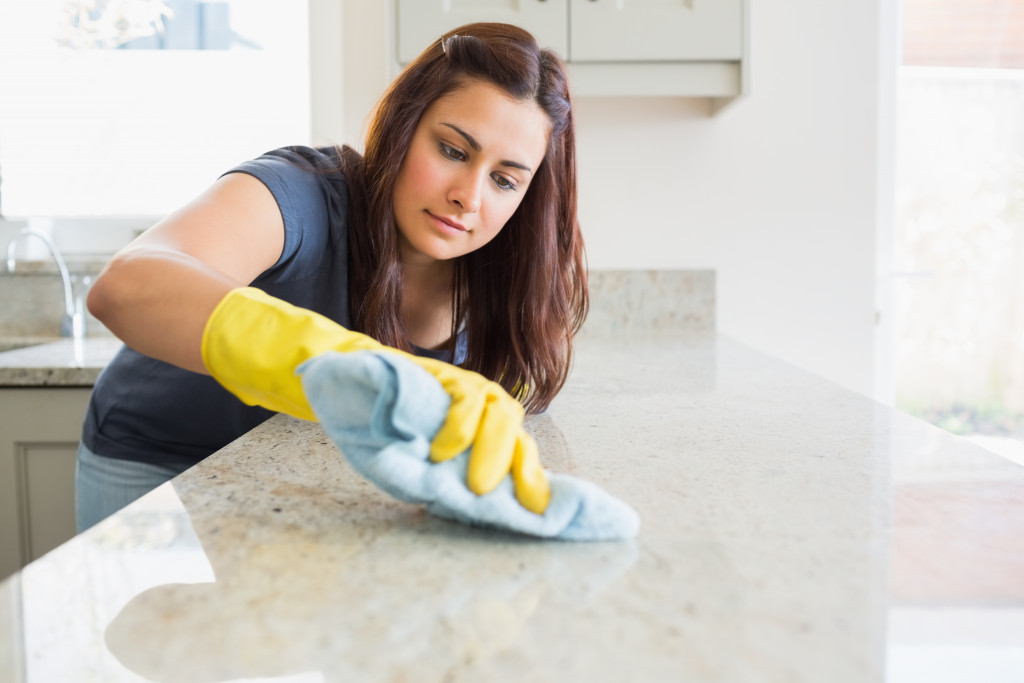Many people spend most of their time indoors, especially since the COVID-19 pandemic began. According to a recent Environmental Protection Agency (EPA) study, Americans spend 90% of their time indoors. With people spending more time at home, it’s more vital than ever to focus on ways to make your home a healthy and safe place.
You can do a few key things to make your home safer. Here are some tips:
Ventilation is key.
According to the CDC, indoor air can be two to five times more polluted than outdoor air. So, one of the best things you can do for your health is to improve the ventilation in your home. You can do this by opening windows and doors when weather permits and using fans to circulate air.
Aside from traditional ventilation methods, mechanical ventilation systems can also help clean and circulate the air in your home. Installing these systems is a great way to improve the air quality in your home and protect your family’s health.
Many homeowners also use air purifiers to help remove pollutants from the air. However, it’s important to note that not all air purifiers are created equal. Some are more effective than others at removing specific types of pollutants. When choosing an air purifier, research to find one that will best meet your needs.
Either way, improving the ventilation in your home is a great way to create a healthier environment for your family.
Keep everything clean.
Clutter is not only unsightly, but it can also be a breeding ground for dust mites, mold, and other allergens. So, one of the best things you can do for your health is to keep your home clean and free of clutter.
Start by decluttering each room in your home. Get rid of anything you don’t need or use. Once you’ve decluttered, deep clean each room from top to bottom. Be sure to dust, vacuum, and mop all surfaces. Don’t forget to clean those hard-to-reach places like ceiling fans and baseboards.
If you have pets, bathe them regularly and vacuum their bedding. Pet hair and dander can trigger allergies and asthma symptoms, so keeping them clean is essential.
After you’ve decluttered and deep cleaned your home, commit to maintaining a regular cleaning routine. Doing so will help keep your home clean and free of allergens, bacteria, and other pollutants.
Clean your gutters.
Your roof is the first line of defense against the elements, so keeping it in good condition is essential. One way to do this is to clean your gutters regularly. Clogged drains can cause water to back up and seep into your home, leading to water damage and mold growth.
Cleaning your gutters is a simple task that you can do yourself. However, if you’re not well-versed in home maintenance, it’s best to hire a professional. Many companies offer gutter cleaning services at an affordable price. They have the necessary tools and experience to safely and effectively clean your gutters.
In doing so, you can protect your home from water damage and keep your family safe.

Choose healthy building materials.
When building or renovating your home, choose healthy materials that won’t off-gas pollutants into your indoor air. Some common offenders are formaldehyde-based adhesives, carpeting, drywall, and insulation.
These materials can release harmful chemicals into the air, triggering allergies and respiratory problems. So, choosing low-quality materials in Volatile Organic Compounds (VOCs) is essential.
Several companies offer VOC-free building materials. Do research to find products that will meet your needs and help create a healthy home environment.
Shift to a sustainable lifestyle.
Living a sustainable lifestyle is not only good for the environment, but it’s also good for your health. Simple changes in your daily routine can reduce exposure to harmful chemicals and help create a healthier home.
Start by reducing your use of single-use plastics. That includes items like water bottles, straws, and grocery bags. You can also reduce your use of toxic cleaning products by making your natural cleaners. Several recipes online use simple ingredients like vinegar and baking soda.
You can also reduce your energy consumption by making simple changes like switching to LED light bulbs and unplugging appliances when they’re not in use. These changes will help reduce your carbon footprint and save money on your energy bill.
There are plenty of things you can do to keep a healthy home. By following the above tips, you can improve the air quality in your home and create a safer, healthier environment for your family. Although it may take some effort, making these changes is worth it to protect the health of those you love.

